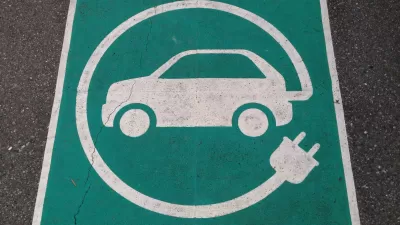While the fiscal cliff talks did not increase the gas tax as some transportation analysts had hoped, it did increase a benefit that many commuters who ride public transit will appreciate, particularly those whose monthly expenses total $240.
Jesse Prentice-Dunn, policy analyst with the Sierra Club's Green Transportation Campaign, blogs on how the fiscal cliff deal affected the environment, specifically the extension of the Production Tax Credit (PTC) and Investment Tax Credit (ITC) for wind energy for one year, and the transit benefit.
"Unknown to many, the (American Taxpayer Relief Act of 2012) also included an extension of a transit tax benefit that will level the playing field for commuters that take transit to work and those that drive. Through 2013, employers will be able to offer their employees pretax deductions of up to $240 per month for riding transit.
For years commuters have received bigger tax breaks for driving to work instead of taking public transit. In 2012, drivers could deduct up to $240 a month before taxes for parking expenses, while transit commuters could only deduct $125.
According to Forbes, a commuter that deducts the full $240 per month will save more than $550 over the course of a year, compared to a commuter that deducts $125 per month."
Will Reisman, transportation reporter for the San Francisco Examiner, provides the recent history on the amount of the write-off. "Originally part of the 2009 federal stimulus package, the $240 monthly program (then $230) wasn’t renewed last year, which resulted in the perk being reduced to $115 a month. The reduction came at the same time that the amount motorists can write off for parking costs was increased from $230 to $240."
Restoring the transit commute benefit and increasing it by $10 to $240 per month is the good news. Forbe's Ashlea Ebeling explains that to apply the benefit retroactively for 2012, which the bill allows, may not be so easy. "How to calculate the retroactive 2012 benefits and get them in commuters’ pockets will be one big administrative problem."
Interested in learning more about the program of deducting commuter expenses, technically known as the "qualified transportation fringe benefits [Section 132(f)] of the Internal Revenue Code"? See Commuter Tax Benefits provided by the National Center for Transit Research at the Center for Urban Transportation Research at the University of South Florida for detailed information on transit, vanpool, and parking benefits plus bicycle commuting reimbursemens according to the American Taxpayer Relief Act of 2012.
So whom do we credit for this restoration of tax parity between driving and taking the bus or train?
Jesse updated his blog to note that "Transportation for America reports Senator Charles Schumer (D-NY) and Congressman Jim McGovern (D-MA) were the leading advocates of the transit tax benefit extension."
FULL STORY: Back on the Rails: Transit Benefits and the Fiscal Cliff

Maui's Vacation Rental Debate Turns Ugly
Verbal attacks, misinformation campaigns and fistfights plague a high-stakes debate to convert thousands of vacation rentals into long-term housing.

Planetizen Federal Action Tracker
A weekly monitor of how Trump’s orders and actions are impacting planners and planning in America.

In Urban Planning, AI Prompting Could be the New Design Thinking
Creativity has long been key to great urban design. What if we see AI as our new creative partner?

King County Supportive Housing Program Offers Hope for Unhoused Residents
The county is taking a ‘Housing First’ approach that prioritizes getting people into housing, then offering wraparound supportive services.

Researchers Use AI to Get Clearer Picture of US Housing
Analysts are using artificial intelligence to supercharge their research by allowing them to comb through data faster. Though these AI tools can be error prone, they save time and housing researchers are optimistic about the future.

Making Shared Micromobility More Inclusive
Cities and shared mobility system operators can do more to include people with disabilities in planning and operations, per a new report.
Urban Design for Planners 1: Software Tools
This six-course series explores essential urban design concepts using open source software and equips planners with the tools they need to participate fully in the urban design process.
Planning for Universal Design
Learn the tools for implementing Universal Design in planning regulations.
planning NEXT
Appalachian Highlands Housing Partners
Mpact (founded as Rail~Volution)
City of Camden Redevelopment Agency
City of Astoria
City of Portland
City of Laramie



























